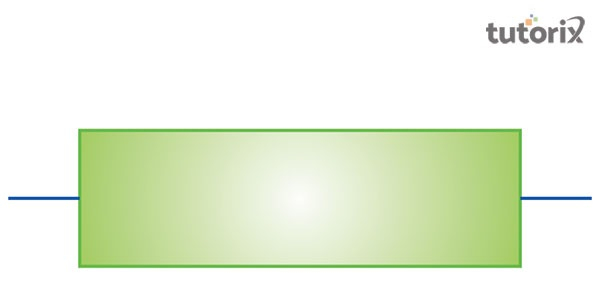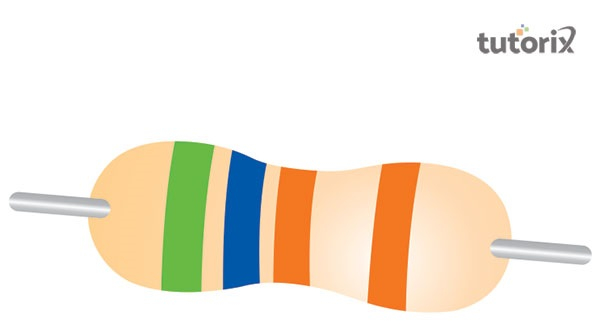Introduction
The resistor is an electric device for limiting the current flow in an electric body. The resistor is also very much applicable for the introduction and control of the amount of electricity in the circuit. This electric device works as a resistance in the electric flow and it is used almost in every electrical device. The basic unit of the measurement of the resistor is ohms (ΩΩ). The unit is applicable as resistance with an ampere of current flow and when the electric volume is measuring in twitch the unit of a volt. R = V/I is the measuring process of the electric flow, where R stands for resistance that is calculated in ohms and V denotes the drop of voltage.
What is Resistor?

Figure 1: IEC symbol of fixed resistor
The resistor is a kind of electric component that works passively with the preliminary function for controlling the electric flow in a circuit. Several types of resistors are available in the global market with different sizes and shapes (Ramankulov et al. 2020). The global IEC symbol of the resistor is in a rectangular shaper having led at every end. Besides this, in the USA, the standard of the resistor is ANSI, which is very popular and severally used represents with a zigzag line. The resistor is entirely dependent on the application of the electric device.
Explore our latest online courses and learn new skills at your own pace. Enroll and become a certified expert to boost your career.
Properties of Resistor

Figure 2: ANSI symbol of fixed resistor
The properties of the resistor are determined by the electric engineer’s specifications. The manufacturing capacity of a resistor depends on the value of resistance that indicates the electric tolerance power. The value depends on the flow of the electricity volume like ±5%. In order to get long-term electric stability, as well as temperature coefficient, is seen in the parameters of the different resistance values (Ramankulov et al. 2020). In terms of high electric frequency circuits like in radio electronics, the use of parasitic capacitance leads to an unpredictable result. Foil resistors are commonly used for different purposes, as it comprises a lower parasitic reactance.
Application of Resistor
In the electric device, the resistor is severally used for different purposes like controlling the current flow in the electric circuit, in the division of voltage and in generating heat in a device, .besides this, in matching as well as loading circuits, gaining control over the electric flow and in fixing the time constants resistor is severally used. Wire wound resistors are not at all applicable in electric devices for their worst composition (Tan & Tan, 2020). The properties of the resistors comprise the noise of resistors, temperature coefficient of resistance and the power-rating ratio of the electric device.
Types of Resistors
The resistor can be classified into different types according to the function and the resistance materials. Two principal types of resistor is commonly seen a fixed and variable resistor (Tan & Tan, 2020).
- The fixed resistor has the fixed resistance power while the resistance power of the variable resistor depends on the flow of electricity. The variable resistors can also be classified into three different types of potentiometer, rheostat and trimpot. The resistor has different types of resistance values that also relied on the physical quantity (Milo et al. 2018). The resistance of thermistors depends on temperature function while photo resistors depend on the light level function.

Figure 3: Colour code of a resistor
Varistors’ resistance depends on the electric voltage and the resistance of magnetic resistors relies on the magnetic field function. For every type of resistor, an individual symbol exists (Yu et al. 2018).
- Another classification of resistors is based on the circuit material and the process of manufacture like carbon composition, metal film, metal oxide film as well as wire-wound resistors. Foil and carbon film resistor is also very much used in the electric engineering process.
Fundamentals of Resistor
The fundamental of the resistor compromises on the Ohm’s law is the most elementary equations applicable in the electrical engineering perspective. The resistor dependents have a close relationship with the drop of voltage, the flow of current and the resistance power of the electric device (Zhang et al. 2021). Kirchhoff circuit laws is another fundamental of the resistor that is based on the conservation principle of the electric charge as well as energy.
Leave a Reply